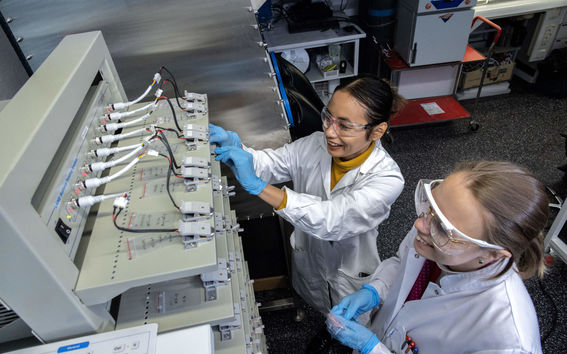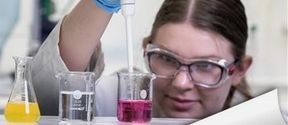What did you study and why?
I just graduated from the Master's Programme in Advanced Energy Solutions - Industrial Energy Processes and Sustainability at the Aalto University School of Chemical Engineering. The studies covered several new energy solutions, thermodynamics, and process technology. I chose this master's programme because I was particularly interested in combining chemical and energy technologies.
What is studying at Aalto University like?
The courses are extremely versatile. In certain courses, you read books and take an exam, while other courses involve teamwork or a project. There are a variety of courses: in addition to technology courses, students can also study languages, arts, or economics, for example.
The most memorable for me have been the teamwork courses, as they allowed me to seek solutions together with others and learn during the project. For example, in the introductory course, we read various articles related to new energy solutions and prepared presentations based on them.
For me, working on the master's thesis was the best part of my studies. I did my thesis in a research group at Aalto and studied the separation of gases using simulation. The thesis also influenced my decision to apply for doctoral studies at Aalto.
What aspects of your studies have been particularly useful for working life?
My teamwork and project work skills have developed considerably. Working life courses also provided concrete tips for job seeking. We had company evenings and summer job events, where we were able to meet potential employers. Certain courses also include cooperation projects with companies. During my studies, I worked a couple of summers in research groups and a few summers in the industry.
What plans do you have for the future?
After graduation, I started as a research assistant in the Mineral Processing and Recycling research group, and I just received the right to study for doctoral studies. In my doctoral dissertation, I study the recycling of lithium-ion batteries. The topic is interesting, because batteries are a growing trend, and their number is increasing, yet the recycling processes are still not good enough. If we do not solve the problem, we will run out of materials.
I hope that, in the future, I can work on research, either at the university or at a company. Master's studies can also be used as a basis for a research career, when you can familiarise yourself with a topic of your interest and select laboratory courses, for instance. If you want to become a researcher, a good starting point is to do your master's thesis for a research group.
What tips would you give to those starting their master's studies?
Many people have doubts about studying in English, but you should not be afraid of it! Once the studies start, you won't even notice it. You don't have to be perfectly fluent in English, basic skills are enough. It is also a good idea to examine Aalto's wide course selection, and build a path that suits you. And don’t forget about your own free time, go to student events, or do things that interest you.













